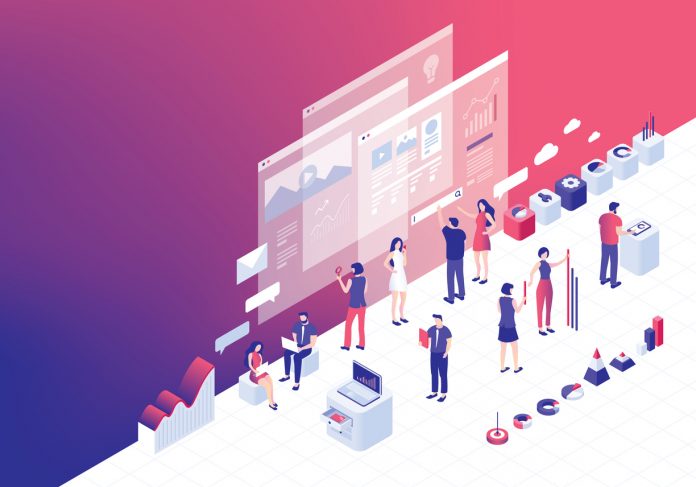
In recent years, tech has shaped the future of business. Cloud based systems to enable more efficient remote working coupled with email and ad automation advancements and software’s enable you to reach and retain the right audience at a fraction of the time expended.
As a start-up, it can often be difficult to know where to start when it comes to taking advantage of the latest tech to aid your business. Below, we will share what we consider to be the best and latest tech to utilise for your business.
1. Cloud computing
All businesses, regardless of industry, should be utilising cloud-based systems to optimise business efficiency.
Should you have any staff, you can influence the way they operate together by allowing greater flexibility to work remotely. As a business, you can save a lot of money by encouraging staff to work remotely, reducing or even removing the need for office space and expensive leases that come with this.
Finance can chase payments, manage inventory and access past ordering information remotely, with a sales team able to create quotes and bring in deals with clients without being stuck to a desk in an office.
Any start-up should be built to accommodate a flexible working environment utilising a cloud-based system, something that is now expected, and employees prefer. should we face a similar problem in the recent lockdown, remote working has enabled most businesses to ‘operate as usual’ remotely.
2. AI and Chatbots
When it comes to marketing, the way in which marketers carry out their work has changed in recent years. Whilst many areas have changed, the adoption of better AI and chatbots has been quite significant.
Focussing on chatbots, during their inception, many marketers were sceptical of their use assuming customers would feel frustrated that it was not a real person on the other end of the chat.
However, as AI software has improved, so too has chatbot efficiency, with more than 50 percent of businesses now using chatbots on their sites, with this percentage rising continually.
The time saved by having most common queries dealt with automatically frees up significant time to utilise elsewhere, with chatbots setup in the right way even able to convert leads. Your start-up will be missing out by not using one as your staff numbers are likely to be limited, you do not want to stretch staff further than necessary.
3. Accounts Automation
Leading on from the above automation, the time saved on automating and issuing invoices is now all-but essential for start-ups and established businesses alike.
With invoice generation and issuing taking up to five percent of working time consumed in businesses across the UK, this ends up being a costly expense for any business. That’s exactly why you should be using a digital invoice payment workflow like YoozPay.
Without having to issue, send, track and chase up invoices, your time within the company will be better used elsewhere. This applies also to other financial services, with lending and investing becoming an easier process. Taking advantage of automation will enhance customer service too with more time-efficient responses.
4. Circular Technology
Much like we have seen outside of technology, businesses and consumers alike are endeavouring to steer clear of the linear model of a product or services lifecycle we have become accustomed to, this being the purchase of the product or service, using this, then chucking it out or upgrading to something else.
With technology, this can become very expensive, particularly for start-ups. Technology is currently costing small businesses too much, with almost half (45%) saying the expense of replacing their existing tech is costing too much.
But technology used and incorporated properly will not only save the company money in the long term, but a necessary requirement to stay competitive relative to competition.
In 2020, most experts predict that technology will continue its current trend of upcycling. To clarify, companies will strive to lease, refurbish and repair technology to not only extend the lifecycle of technology, but find alternative ways to use.
Software solutions are continuing to offer free upgrades with the purchase of the initial licence, increasing longevity and ability to function on newer devices too.
5. A Shift in Social Communication
More and more companies are doing what would have been considered highly unprofessional just five years ago, reaching customers on Facebook chat and WhatsApp.
Many start-ups are concerned about using such technologies through fears that it is seen as unprofessional, but if implemented correctly this can capture your audience’s attention more than any other social platform.
Updating clients on orders or projects through stories and even direct messages on these platforms have higher engagement rates. Consumers that opt into this will be pleased with the communication they are receiving, though consider this is not the same for everyone, communication may have to be tailored according to both the audience and individuals.
The rise in social commerce, whereby your products or services are marketing and sold on social platforms will also continue to see a rise in popularity through 2020 and beyond. When paired with native AI and automation to make the selling process either, many predict this will be the new prominent way of carrying out online shopping.
Make sure to branch out where you are selling and use the social platforms available to you to reach both a new audience and your existing one.
To Conclude
As a new business owner, it can be daunting entering the realm of technology and knowing where to allocate your often-limited funds. As you can see, staying up to date with technology does not have to be costly.
Refine the technology you need that will add value and efficiency to your company whilst also aiming to implement technologies that will allow for longevity. Although this is not easy, it will be the building block of success for your start-up.










